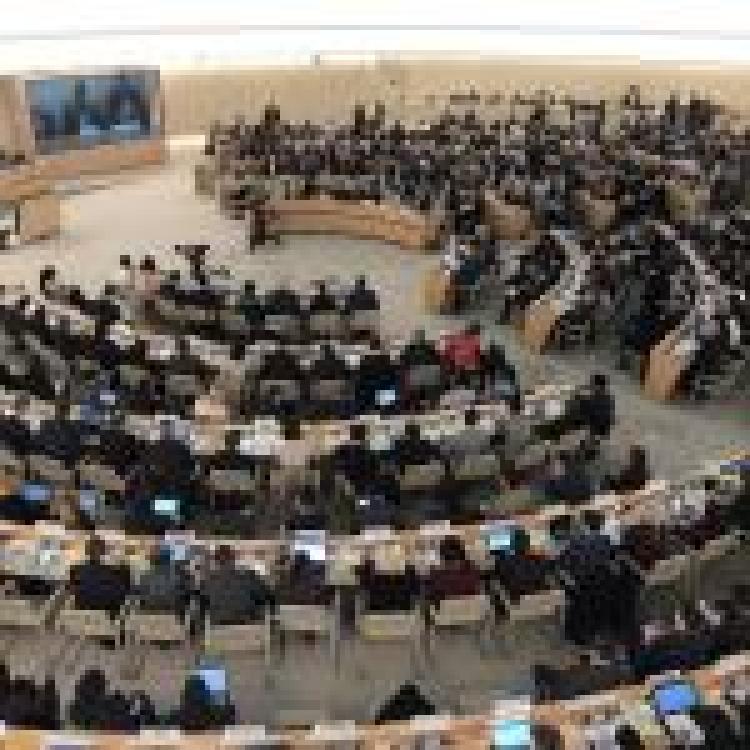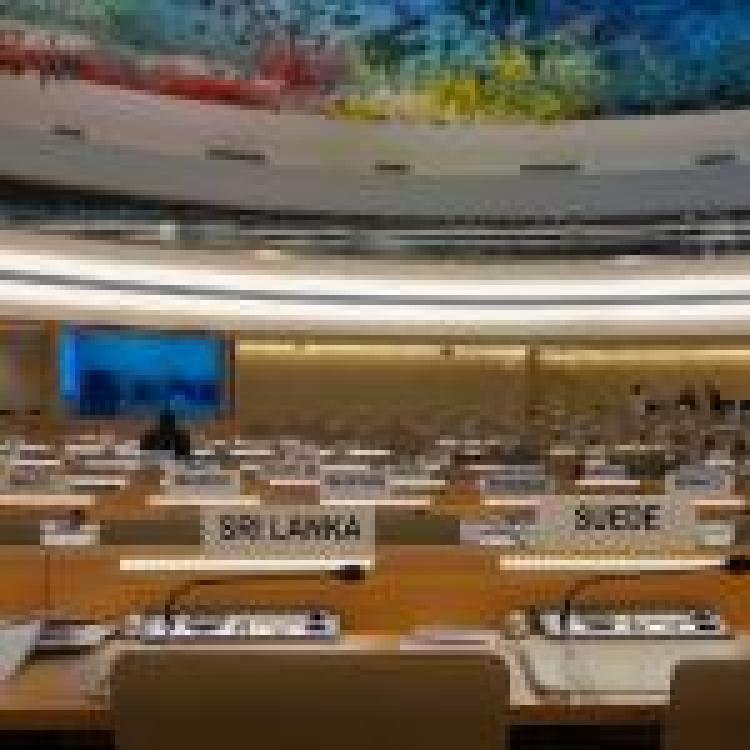![]()
Dominic Rabb - Foreign Secretary
British ministers and diplomats have welcomed the adoption of the United Nations Human Rights Council resolution on accountability for mass atrocities committed in Sri Lanka, with Foreign Secretary Dominic Rabb noting that "the UK, UN and international community are rightfully concerned about human rights in Sri Lanka".
Rabb added that resolution pushes for "progress on justice, accountability and reconciliation"
The @UN_HRC has voted in favour of the UK-led resolution on Sri Lanka. The UK, UN and international community are rightfully concerned about human rights in Sri Lanka, and are pushing for progress on justice, accountability, and reconciliation after the civil war there
— Dominic Raab (@DominicRaab) March 23, 2021
Speaking to the Tamil Guardian MP Elliot Colburn and chair of the All-Party Parliamentary Group for Tamils (APPGT) called the adoption of the resolution a "step in the right direction for achieving accountability and justice" and called on the international community to take further "unilateral action to support the resolution".
“I am very pleased [with] the resolution sponsored by the United Kingdom on promoting reconciliation, accountability and human rights in Sri Lanka has been adopted by the UN Human Rights Council. This is a step in the right direction for achieving accountability and justice. Now is the time for the international community, led by the United Kingdom, to take unilateral action to support the resolution as recommended by the UN High Commissioner for Sri Lanka.”
The United Kingdom was a primary penholder of the resolution and tabled it alongside the core group, which includes Canada, Germany, Montenegro, North Macedonia and Malawi. The resolution was described as weakened by Tamil parliamentarians and civil society members as it fell short of demands made by Tamils and the UN High Commissioner, which include a proposed referral of Sri Lanka to the ICC on charges of genocide and for member states to consider unilateral sanctions.
British Minister of State Foreign Commonwealth and Development affairs Tariq Ahmad, the British High Commissioner for Sri Lanka Sarah Hulton and the UK Permanent Representative to the World Trade Organisation (WTO) and the United Nations Julian Braithwaite also welcomed the resolution.
Sarah Hulton expanded that the resolution builds on “achievements to date in accountability and reconciliation” and the resolution focuses on improving the human right situation in Sri Lanka.
Building on achievements to date in accountability and reconciliation is important, the new @UN_HRC resolution focuses on this and ongoing support to improve Sri Lanka’s human rights situation. https://t.co/Ww2XJyJNQ1
— Sarah Hulton OBE (@SarahHultonFCDO) March 23, 2021
Tariq Ahmad welcomed the resolution as one which will “provide a framework to improve human rights, advance justice for victims and deliver lasting peace and reconciliation”
Today, the @UN_HRC adopted a new resolution on justice, accountability and human rights in Sri Lanka, led by the UK and partners. This will provide a framework to improve human rights, advance justice for victims, and deliver lasting peace and reconciliation.
— Lord (Tariq)Ahmad of Wimbledon (@tariqahmadbt) March 23, 2021
Julian Braithwaite, the UK representative at the United Nations delivered the statement on behalf of the core group. He noted that the resolution reflects the High Commissioners findings “that the human rights situation has deteriorated, with particular concern for human rights defenders and civil society space and members of different ethnic and religious communities including Tamils, Muslims and Christians.”
He adds,
“ independent institutions have become weakened and impunity has become more entrenched as progress in emblematic cases have stalled. Some of those who had sought to pursue justice and advance accountability through the national courts have found themselves persecuted and in one case imprisoned. While others who were convicted or suspected of large-scale violations have been pardoned and promoted”.
Concluding his statement he noted that the core group brings this resolution “in the hope that it will advance the human rights of all communities” and “most importantly that it will help prevent the reoccurrence of past grave violations, which the High Commissioner reports warns this council about in such clear terms“, furthermore he noted the core groups “regret that an agreement could not be met with Sri Lanka during the four informal meetings on the draft resolution” but believe it provides the “best framework to support justice and lasting reconciliation and address the most critical human rights challenges”.
Julian Braithwaite expressed the importance of the continued “scrutiny of human rights” in Sri Lanka by the UNHRC
Breaking! @UN_HRC has just adopted the resolution on Sri Lanka. Important that @UNHumanRights & the Council scrutiny of human rights in the country continues.
— Julian Braithwaite (@JulianWTO_UN) March 23, 2021
My thanks in particular to the other members of the Core Group, Canada, Germany, Malawi, Montenegro & North Macedonia. pic.twitter.com/HmJwHnZwRX



